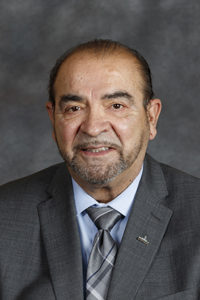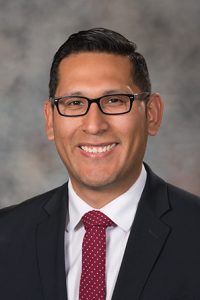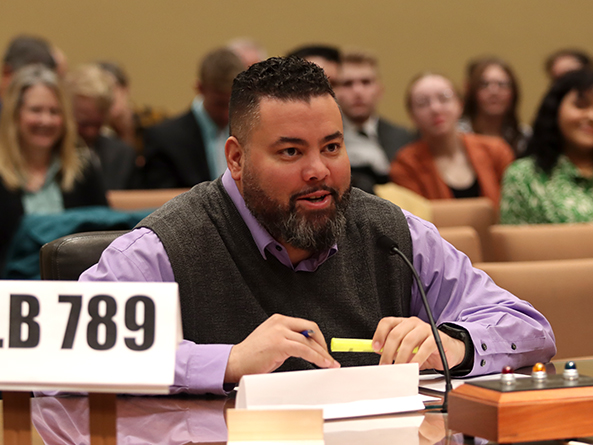Variety of measures seek millions for affordable housing
The Appropriations Committee heard testimony March 8 on several measures aimed at addressing Nebraska’s housing shortage by devoting more state funds to existing programs.
Among the proposals was LB789, sponsored by Sen. Justin Wayne of Omaha, which would appropriate $50 million in general funds in fiscal year 2023-24 and FY2024-25 to the state Department of Economic Development to be used for innovative housing solutions.

Wayne said Nebraska’s approache to the housing shortage must change. There are innovative ways to build homes, he said, and the state needs to incentivize them — whether that is off-site construction, 3-D printing, hemp bricks or other approaches.
“If we’re going to solve this affordable housing crisis, we have to do it quicker, better and more efficient,” Wayne said. “What we’re doing right now isn’t working.”
Wayne Mortensen, CEO of NeighborWorks Lincoln, testified in favor of the proposal. A lack of affordable housing is a statewide problem, he said, noting that 44 percent of all households in Nebraska are “housing insecure,” defined as spending more than 30 percent of their income on housing-related expenses.
Rising construction costs and a lack of inventory are exacerbating the problem, he said, and Lincoln alone is facing a looming shortage of 17,000 housing units by 2030.
“This is about recruiting local affordable housing developers, and perhaps some that are out of the region as well, to find the solutions necessary to stretch the resources we have in other [funding] pools more effectively,” Mortensen said.
Developer Ward Hoppe, who specializes in workforce housing, also supported the proposal. Builders constantly are seeking ways to bridge the roughly $100,000 gap between what it costs to build a home and what working people can afford, he said. Most often, Hoppe said, the answer is incentives that allow builders to scale development, which can result in negotiated discounts on materials.

Both LB504, sponsored by Grand Island Sen. Raymond Aguilar, and LB741, sponsored by Omaha Sen. Tony Vargas, would appropriate $50 million in general funds over the next two fiscal years to the Rural Workforce Housing Investment Fund to provide workforce housing grants.
LB741 also would appropriate $50 million over two years to the Affordable Housing Trust Fund to finance loans, grants, subsidies, credit enhancements and other financial assistance for community housing projects.
Vargas said Nebraska’s future success depends on solving the state’s housing crisis. The lack of quality, affordable housing has become a barrier to job growth, economic development and overall quality of life for Nebraskans, he said, and “dramatic action” is needed.
LB504 and LB741 would double the capacity of two existing programs that have proven records of success, he said.
“These investments will accelerate the creation of more affordable housing and more workforce housing across Nebraska at a time when we desperately need it,” Vargas said. “The stakes cannot be overstated.”
Robin Ambrose of the Nebraska Investment Finance Authority testified in favor of both bills. The Rural Workforce Housing Fund is a flexible tool, she said, with projects selected at the local level and supported by matching local funds, and the Affordable Housing Trust Fund provides more options than federal programs, including the ability to rehabilitate existing residences.
Laura McAloon, Grand Island interim city administrator, also testified in favor on behalf of the city and several other organizations, including the League of Nebraska Municipalities. Grand Island is committed to using innovative tools, she said, such as public/private partnerships like Rural Workforce Housing Investment Fund grants.

McAloon said Grand Island employers are scrambling to fill 10,000 vacant jobs due to a lack of necessary housing. The city’s population has more than doubled over the last 25 years, she said, but housing has not kept pace.
“The average Grand Island resident struggles to find any housing at all,” she said, “let alone a single-family home that they can purchase.”
No one testified in opposition to any of the proposals and the committee took no immediate action on them.


